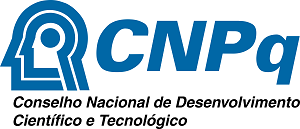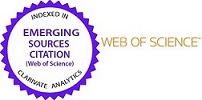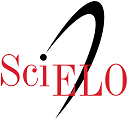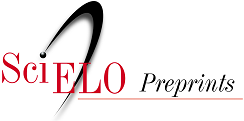Estratégias de autorregulação social: relatos de uso em uma intervenção com professores do Ensino Médio
DOI:
https://doi.org/10.25053/redufor.v9.e13998Palavras-chave:
Autorregulação Social, Ensino Médio, Estratégias de Aprendizagem, Intervenção, ProfessoresResumo
Este artigo tem como objetivo analisar os efeitos de uma intervenção realizada on-line no relato de uso de estratégias de autorregulação social por professores do Ensino Médio em um curso de formação continuada. A pesquisa foi conduzida por meio de um delineamento quase experimental com 14 docentes, utilizando uma abordagem mista para analisar dados coletados antes e após a intervenção. Para tanto, foi utilizado um questionário estruturado contendo 15 questões elaborado para esta pesquisa. A intervenção, baseada em sobreposição curricular, abordou estratégias de autorregulação social, cognitiva e metacognitiva. Os resultados não demonstraram diferenças estatisticamente significativas para as estratégias de autorregulação social utilizadas, no entanto, evidenciaram o aumento do uso de tecnologias digitais, como o WhatsApp, para suporte social. De forma geral, a intervenção mostrou-se eficaz em promover ajustes comportamentais e fortalecer a comunicação entre os professores, evidenciando a importância de estratégias de autorregulação social no ambiente educacional.
Downloads
Referências
AMERSTORFER, C. M.; MÜNSTER-KISTNER, C. F. v. Student perceptions of academic engagement and student-teacher relationships in problem-based learning. Frontiers in Psychology, [S.l.], v. 12, p. 1-18, 2021. Disponível em: https://www.frontiersin.org/journals/psychology/articles/10.3389/fpsyg.2021.713057/full. Acesso em: 2 jul. 2024. DOI: https://doi.org/10.3389/fpsyg.2021.713057
ATEŞ, A. A. Exploring the impact of self-regulated learning intervention on students' strategy use and performance in a design studio course. International Journal of Technology and Design Education, [S.l.], v. 33, n. 1, p. 1923-1957, 2022. Disponível em: https://www.ncbi.nlm.nih.gov/pmc/articles/PMC9713087/. Acesso em: 2 abr. 2024. DOI: https://doi.org/10.1007/s10798-022-09798-3
BAHTIAR, R. S. et al. Impact of social interaction among primary school students on learning performance. In: ICLIQE 21, 5., 2022, Nova Iorque. Anais […]. Nova Iorque: Association for Computing Machinery, 2022. p. 1-7.
BANDURA, A. Social cognitive theory of self-regulation. Organizational Behavior and Human Decision Processes, [S.l.], v. 50, n. 1, p. 248-287, 1991. Disponível em: https://www.sciencedirect.com/science/article/pii/074959789190022L. Acesso em: 20 jan. 2023. DOI: https://doi.org/10.1016/0749-5978(91)90022-L
BANDURA, A. Toward a psychology of human agency: Pathways and reflections. Perspectives on Psychological Science, [S.l.], v. 13, n. 2, p. 130-136, 2018. Disponível em: https://www.jstor.org/stable/48568537. Acesso em: 3 set. 2024. DOI: https://doi.org/10.1177/1745691617699280
BARDIN, L. Análise de conteúdo. São Paulo: 70, 2011.
BAUMEISTER, R et al. Self-regulation and personality: How interventions enhance regulatory success and how burnout moderates the effects of traits on behavior. Personality and Social Psychology Review, [S.l.], v. 74, n. 6, p. 1773-1801, 2007. Disponível em: https://pubmed.ncbi.nlm.nih.gov/17083666/. Acesso em: 4 ago. 2024. DOI: https://doi.org/10.1111/j.1467-6494.2006.00428.x
CORDIER, R. et al. Effects of interventions for social anxiety and shyness in school-aged children: A systematic review and meta-analysis. PLoS One, [S.l.], v. 16, n. 7, p. 103-117, 2021. Disponível em: https://pubmed.ncbi.nlm.nih.gov/34242303/. Acesso em: 31 ago. 2024. DOI: https://doi.org/10.1371/journal.pone.0254117
CRUVINEL, M.; BORUCHOVITCH, E. Como promover a autorregulação emocional de crianças e adolescentes no contexto educacional. In: BORUCHOVITCH, E.; GOMES, M. A M. Aprendizagem autorregulada: como promovê-la no contexto educativo?. Petrópolis: Vozes, 2019. p. 96-121.
EZMECI, F.; PARPUCU, N.; AKMAN, B. The mediating role of self-regulation skills in the relationship between social skills and problem behaviors in the early childhood period. Psycho-Educational Research Reviews, [S.l.], v. 11, n. 3, p. 738-750, 2022. Disponível em: https://perrjournal.com/index.php/perrjournal/article/view/467. Acesso em: 15 ago. 2024. DOI: https://doi.org/10.52963/PERR_Biruni_V11.N3.06
FÁVERO, L. P.; BELFIORE, P. Manual de Análise de Dados: Estatística e Machine Learning com Excel®, SPSS®, Stata®, R® e Python®. 2. ed. São Paulo: GEN LTC, 2024.
FERNANDEZ-RIO, J. et al. Self-Regulation, cooperative learning, and academic self-efficacy: Interactions to prevent school failure. Frontiers in Psychology, [S.l.], v. 8, n. 22, p. 1-10, 2017. Disponível em: https://pubmed.ncbi.nlm.nih.gov/28154544/. Acesso em: 3 set. 2024. DOI: https://doi.org/10.3389/fpsyg.2017.00022
FORSELL, J. et al. Teachers’ perceived challenges in group work assessment. Educational Assessment & Evaluation, [S.l.], v. 8, n. 1, p. 1-16, 2021. Disponível em: https://www.tandfonline.com/doi/full/10.1080/2331186X.2021.1886474. Acesso em: 2 set. 2024. DOI: https://doi.org/10.1080/2331186X.2021.1886474
JÄRVELÄ, S.; JÄRVENOJA, H. Socially constructed self-regulated learning and motivation regulation in collaborative learning groups. Teachers College Record, New York, v. 113, n. 2, p. 350-374. 2011. Disponível em: https://journals.sagepub.com/doi/10.1177/016146811111300205. Acesso em: 2 set. 2024. DOI: https://doi.org/10.1177/016146811111300205
MAMMADOV, S.; SCHROEDER, K. A meta-analytic review of the relationships between autonomy support and positive learning outcomes. Contemporary Educational Psychology, [S.l.], v. 75, p. 102235, 2023. Disponível em: https://www.sciencedirect.com/science/article/abs/pii/S0361476X23000899. Acesso em: 2 set. 2024. DOI: https://doi.org/10.1016/j.cedpsych.2023.102235
MARTÍNEZ-LÓPEZ, Z. et al. Perceived social support and self-regulated learning: A systematic review and meta-analysis. International Journal of Educational Research Open, [S.l.], v. 5, n. 1, p. 1-12, 2023. Disponível em: https://www.sciencedirect.com/science/article/pii/S2666374023000663. Acesso em: 2 set. 2024.
MORETTIN, P. A.; BUSSAB, W. O. Estatística Básica. 10. ed. São Paulo: Saraiva Uni, 2024.
MUWONGE, C. M. et al. Use of self-regulated learning strategies among teacher education students: A latent profile analysis. Social Sciences & Humanities Open, [S.l.], v. 2, n. 1, p. 1-8, 2020. Disponível em: https://www.sciencedirect.com/science/article/pii/S2590291120300267. Acesso em: 2 set. 2024. DOI: https://doi.org/10.1016/j.ssaho.2020.100037
OZIMEK, P.; FÖRSTER, J. The social online-self-regulation-theory: A review of self-regulation in social media. Journal of Media Psychology: Theories, Methods, and Applications, [S.l.], v. 33, n. 4, p. 181-190, 2021. Disponível em: https://www.sciencedirect.com/science/article/pii/S2590291120300267. Acesso em: 2 set. 2024. DOI: https://doi.org/10.1027/1864-1105/a000304
PANADERO, E. et al. How individual self-regulation affects group regulation and performance: A shared regulation intervention. Small Group Research, [S.l.], v. 46, n. 4, p. 431-454, 2015. Disponível em: https://journals.sagepub.com/doi/abs/10.1177/1046496415591219. Acesso em: 3 set. 2024. DOI: https://doi.org/10.1177/1046496415591219
RANIA, N.; COPPOLA, I.; PINNA, L. Reflective practices to study group dynamics: Implement empowerment and understand the functioning of groups. Frontiers in Psychology, [S.l.], v. 12, p. 786754, 2021. Disponível em: https://pubmed.ncbi.nlm.nih.gov/34912280/. Acesso em: 3 set. 2024. DOI: https://doi.org/10.3389/fpsyg.2021.786754
ROMERO-AYUSO, D. et al. A Pilot Study of Improving Self-Regulation and Social Interaction with Peers: An “Exciting School”. Children, Basel, v. 9, n. 6, p. 1-8, 2022. Disponível em: https://www.ncbi.nlm.nih.gov/pmc/articles/PMC9222160/. Acesso em: 3 set. 2024. DOI: https://doi.org/10.3390/children9060829
ROSÁRIO, P.; POLYDORO, S. A. J. Capitanear o aprender: promoção da autorregulação da aprendizagem no contexto escolar. São Paulo: Casa do Psicólogo, 2015.
THORNHILL-MILLER, B. et al. Creativity, Critical thinking, communication, and collaboration: Assessment, certification, and promotion of 21st Century skills for the future of work and education. Journal of Intelligence, [S.l.], v. 11, n. 3, p. 1-32, 2023. Disponível em: https://www.mdpi.com/2079-3200/11/3/54. Acesso em: 3 set. 2024. DOI: https://doi.org/10.3390/jintelligence11030054
TOYOKAWA, W.; WHALEN, A.; LALAND, K. N. Social learning strategies regulate the wisdom and madness of interactive crowds. Nature Human Behaviour, [S.l.], v. 3, p. 183-193, 2019. Disponível em: https://www.nature.com/articles/s41562-018-0518-x. Acesso em: 3 set. 2024. DOI: https://doi.org/10.1038/s41562-018-0518-x
WARSCHBURGER, P. et al. Self-regulation as a resource for coping with developmental challenges during middle childhood and adolescence: the prospective longitudinal PIERYOUTH-study. BMC Psychology, [S.l.], v. 11, n. 1, p. 1-21, 2023. Disponível em: https://bmcpsychology.biomedcentral.com/articles/10.1186/s40359-023-01140-3. DOI: https://doi.org/10.1186/s40359-023-01140-3
Acesso em: 3 set. 2024.
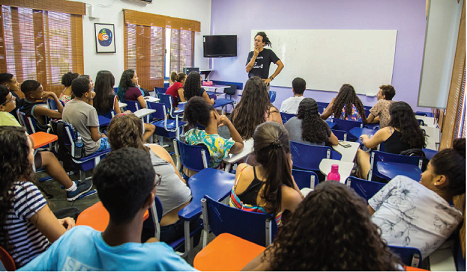
Downloads
Publicado
Como Citar
Edição
Seção
Licença
Copyright (c) 2024 Deivid Alex dos Santos, Paula Mariza Zedu Alliprandini

Este trabalho está licenciado sob uma licença Creative Commons Attribution 4.0 International License.
Os autores possuem direitos autorais dos seus textos:
A revista Educação & Formação permite ao autor os direitos de publicação, no entanto, recomenda um intervalo de dois anos para o caso de republicação.
Os nomes e endereços informados nesta revista serão usados exclusivamente para os serviços prestados por esta publicação, não sendo disponibilizados para outras finalidades ou a terceiros.





